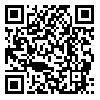Sat, Feb 7, 2026
[Archive]
Volume 12, Issue 4 (12-2020)
IJDO 2020, 12(4): 226-232 |
Back to browse issues page
Download citation:
BibTeX | RIS | EndNote | Medlars | ProCite | Reference Manager | RefWorks
Send citation to:



BibTeX | RIS | EndNote | Medlars | ProCite | Reference Manager | RefWorks
Send citation to:
Heidari H, Azarbayjani M A, Peeri M, Farzanegi P, Hosseini S A. Effect of 4-weeks Endurance Training and Berberine on Glycemic Index and Inflammation in Diabetic Rats. IJDO 2020; 12 (4) :226-232
URL: http://ijdo.ssu.ac.ir/article-1-594-en.html
URL: http://ijdo.ssu.ac.ir/article-1-594-en.html
Hossein Heidari 

 , Mohammad Ali Azarbayjani *
, Mohammad Ali Azarbayjani * 

 , Maghsoud Peeri
, Maghsoud Peeri 

 , Parvin Farzanegi
, Parvin Farzanegi 

 , Seyed Ali Hosseini
, Seyed Ali Hosseini 




 , Mohammad Ali Azarbayjani *
, Mohammad Ali Azarbayjani * 

 , Maghsoud Peeri
, Maghsoud Peeri 

 , Parvin Farzanegi
, Parvin Farzanegi 

 , Seyed Ali Hosseini
, Seyed Ali Hosseini 


Department of Exercise Physiology, Central Tehran Branch, Islamic Azad University, Tehran, Iran
Abstract: (1819 Views)
Objective: Exercise and herbal medicine Berberine are known as anti-inflammatory agents. This study aimed to evaluate the effect of 4-weeks of endurance training and Berberine Chloride (BC) consumption on inflammatory factors and glycemic index in male wistar diabetic rats.
Materials and Methods: In an experimental trial, 36 male wistar rats divided into 6 groups of 6 rats including 1) control, 2) 15 mg/kg BC, 3) 30 mg/kg BC, 4) endurance training, 5) endurance training with 15 mg/kg BC and 6) endurance training with 30 mg/kg of BC. During 4 weeks, rats in groups 2, 3, 5, and 6 received BC by gavage at specified doses, and rats in groups 4- 6 also ran on the treadmill at speeds of 10-15 m/min for 10-30 minutes. For statistical analysis of data-independent sample T-test, two-way ANOVA were used (P-value= 0.05).
Results: Training and BC significantly increased function of pancreatic beta cells and reduced FBS, TNF-α, and IL- 6 (P-value= 0.001); Training significantly increased VO2max and insulin; interaction of training and BC on an increase of VO2max and reduction of TNF-α were significant (P-value= 0.001) and 30 mg/kg BC reduced TNF-α and FBS much more than 15 mg/kg BC (P-value= 0.001).
Conclusion: It appears that Endurance training and BC can decrease glycemic index and inflammatory markers of diabetes and the effects of BC is dose-dependent, so that the 30 mg/kg BC is more effective rather than the 15 mg/kg BC.
Materials and Methods: In an experimental trial, 36 male wistar rats divided into 6 groups of 6 rats including 1) control, 2) 15 mg/kg BC, 3) 30 mg/kg BC, 4) endurance training, 5) endurance training with 15 mg/kg BC and 6) endurance training with 30 mg/kg of BC. During 4 weeks, rats in groups 2, 3, 5, and 6 received BC by gavage at specified doses, and rats in groups 4- 6 also ran on the treadmill at speeds of 10-15 m/min for 10-30 minutes. For statistical analysis of data-independent sample T-test, two-way ANOVA were used (P-value= 0.05).
Results: Training and BC significantly increased function of pancreatic beta cells and reduced FBS, TNF-α, and IL- 6 (P-value= 0.001); Training significantly increased VO2max and insulin; interaction of training and BC on an increase of VO2max and reduction of TNF-α were significant (P-value= 0.001) and 30 mg/kg BC reduced TNF-α and FBS much more than 15 mg/kg BC (P-value= 0.001).
Conclusion: It appears that Endurance training and BC can decrease glycemic index and inflammatory markers of diabetes and the effects of BC is dose-dependent, so that the 30 mg/kg BC is more effective rather than the 15 mg/kg BC.
Type of Study: Research |
Subject:
Special
Received: 2021/01/12 | Accepted: 2020/12/20 | Published: 2020/12/20
Received: 2021/01/12 | Accepted: 2020/12/20 | Published: 2020/12/20
| Rights and permissions | |
 |
This work is licensed under a Creative Commons Attribution-NonCommercial 4.0 International License. |




